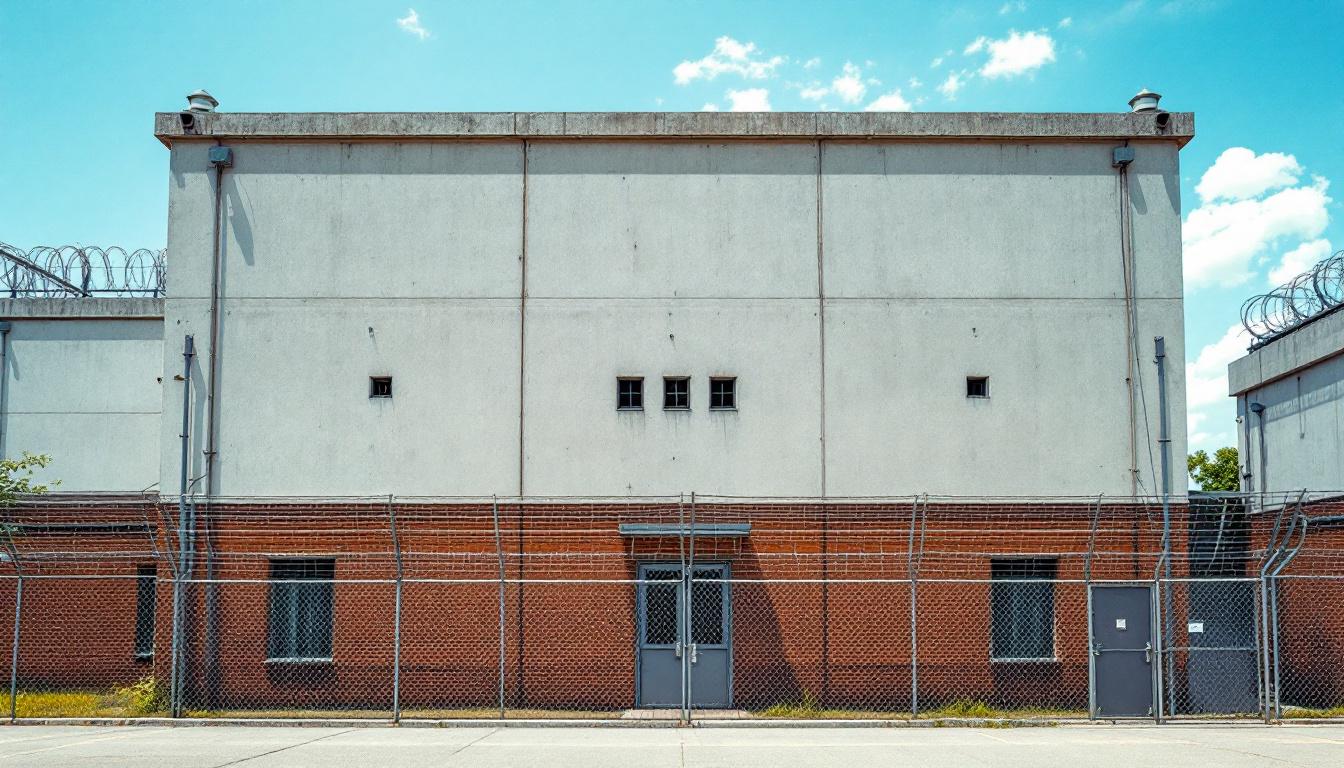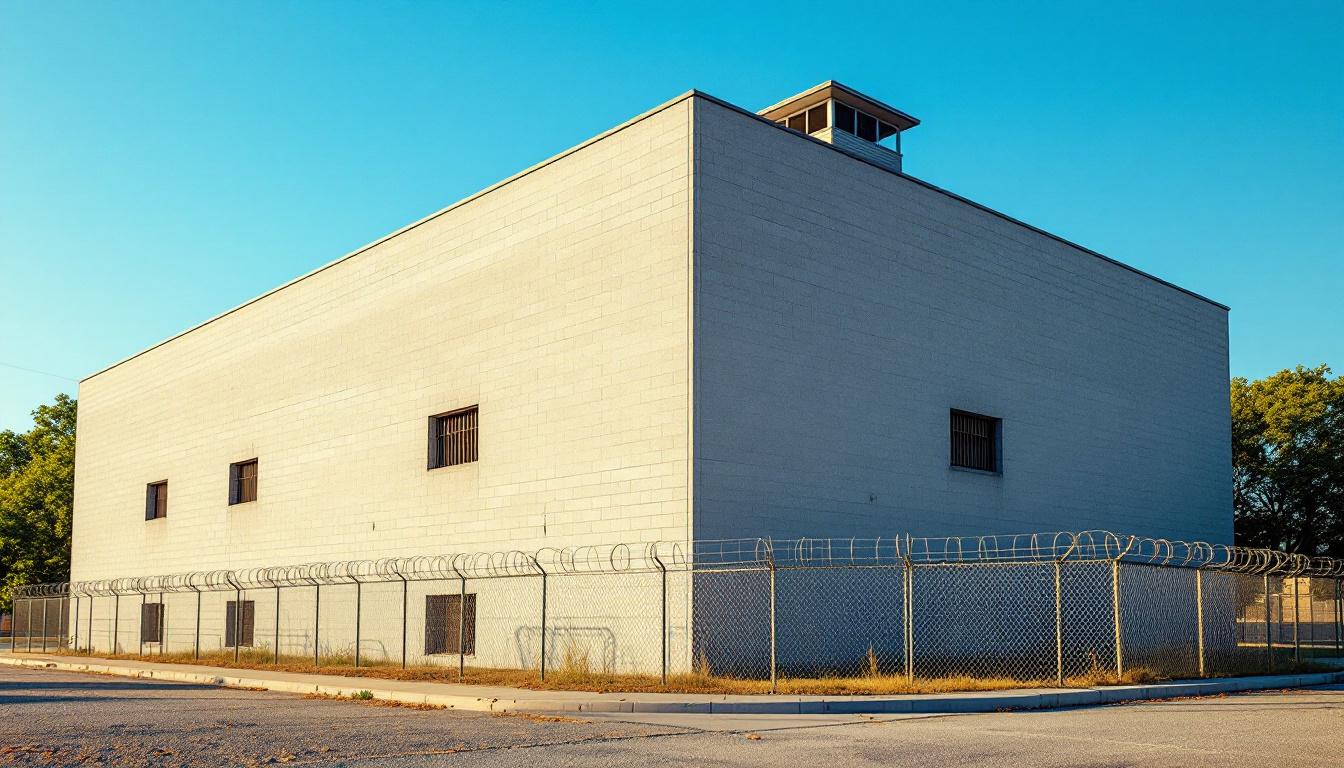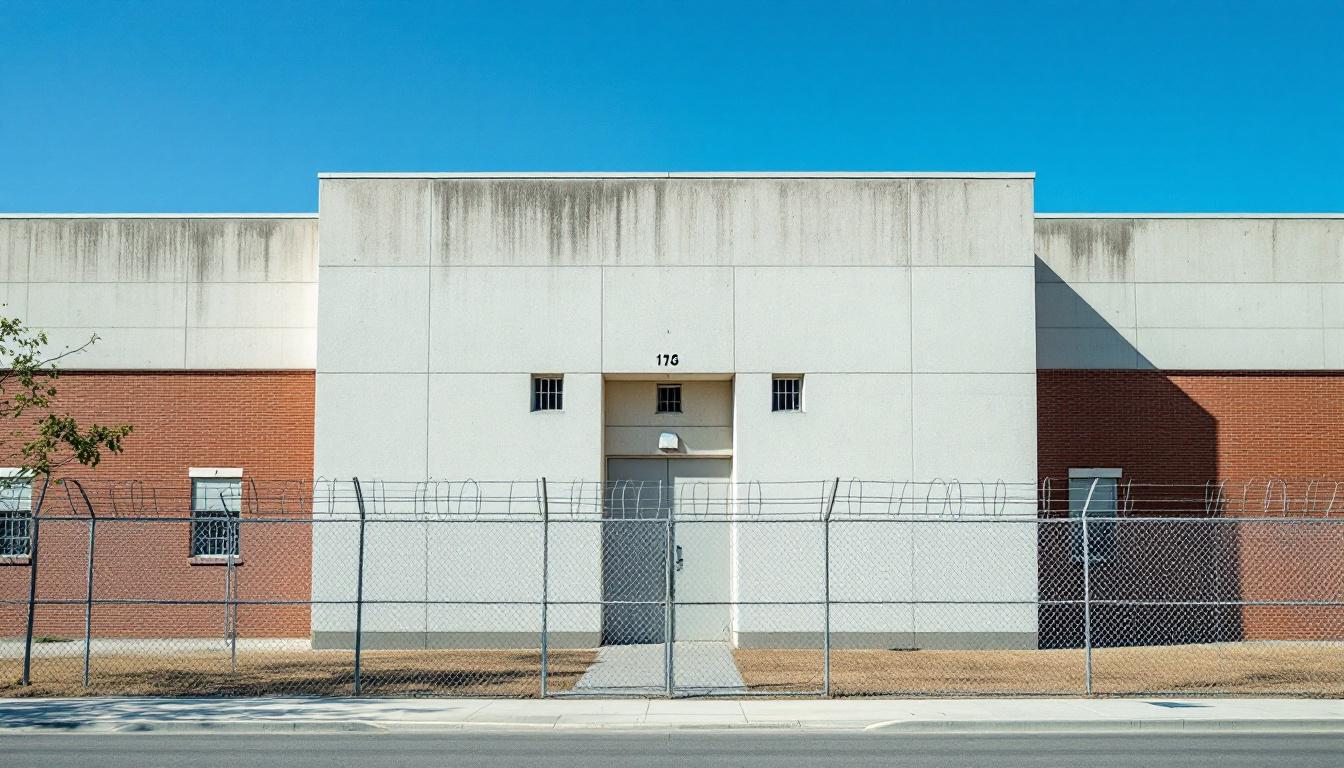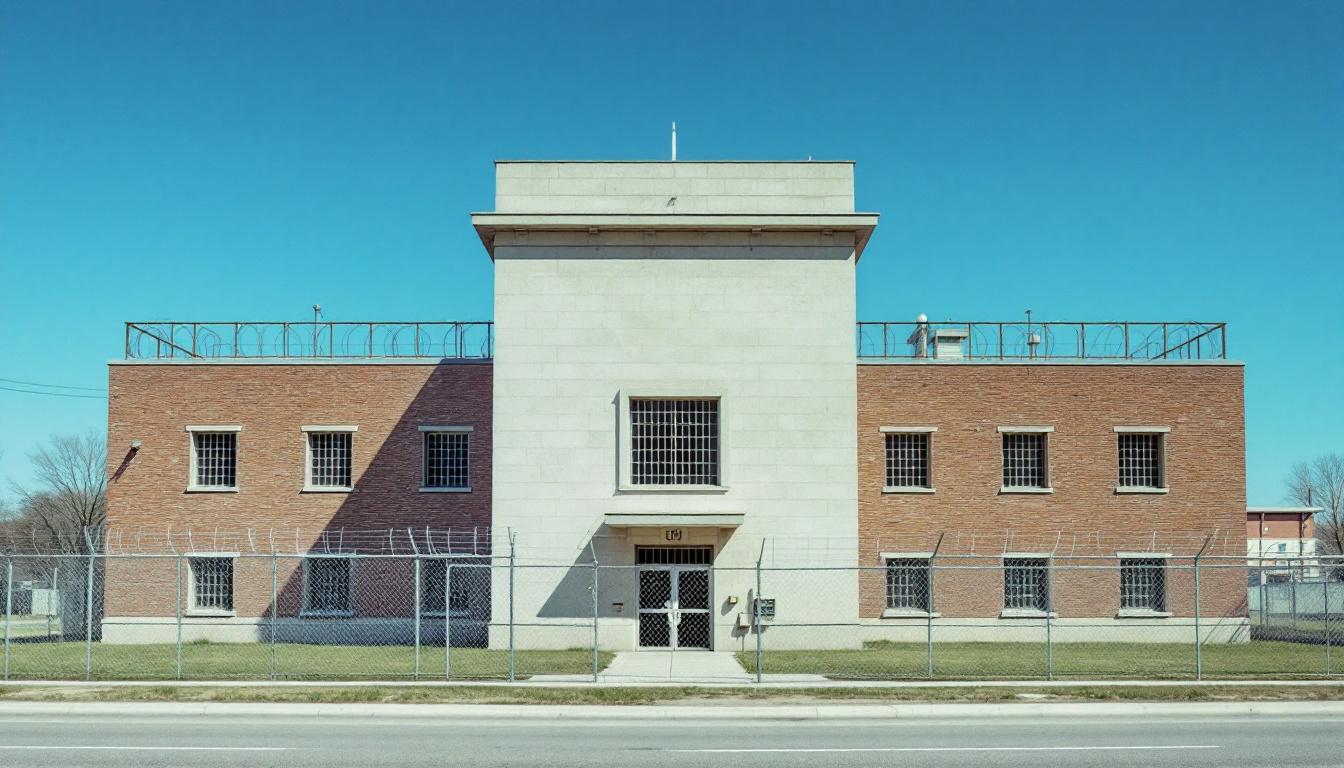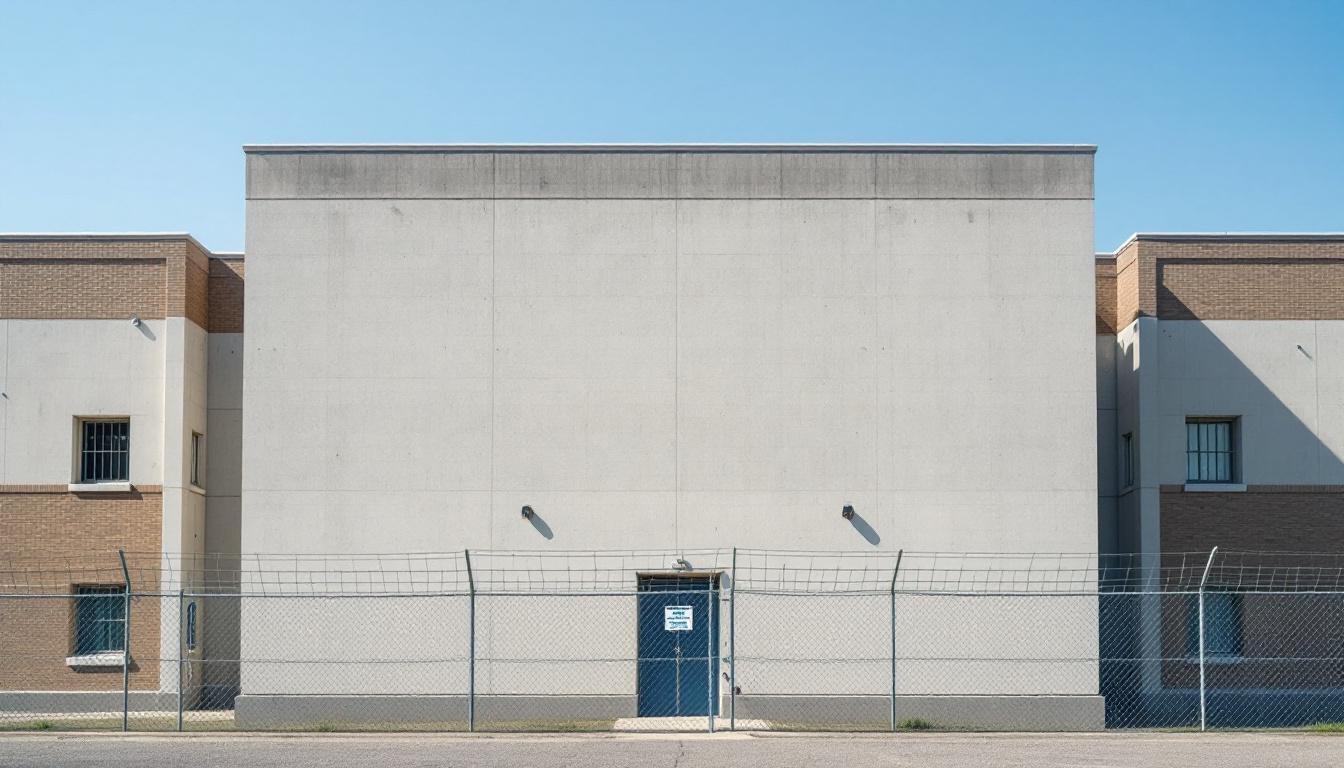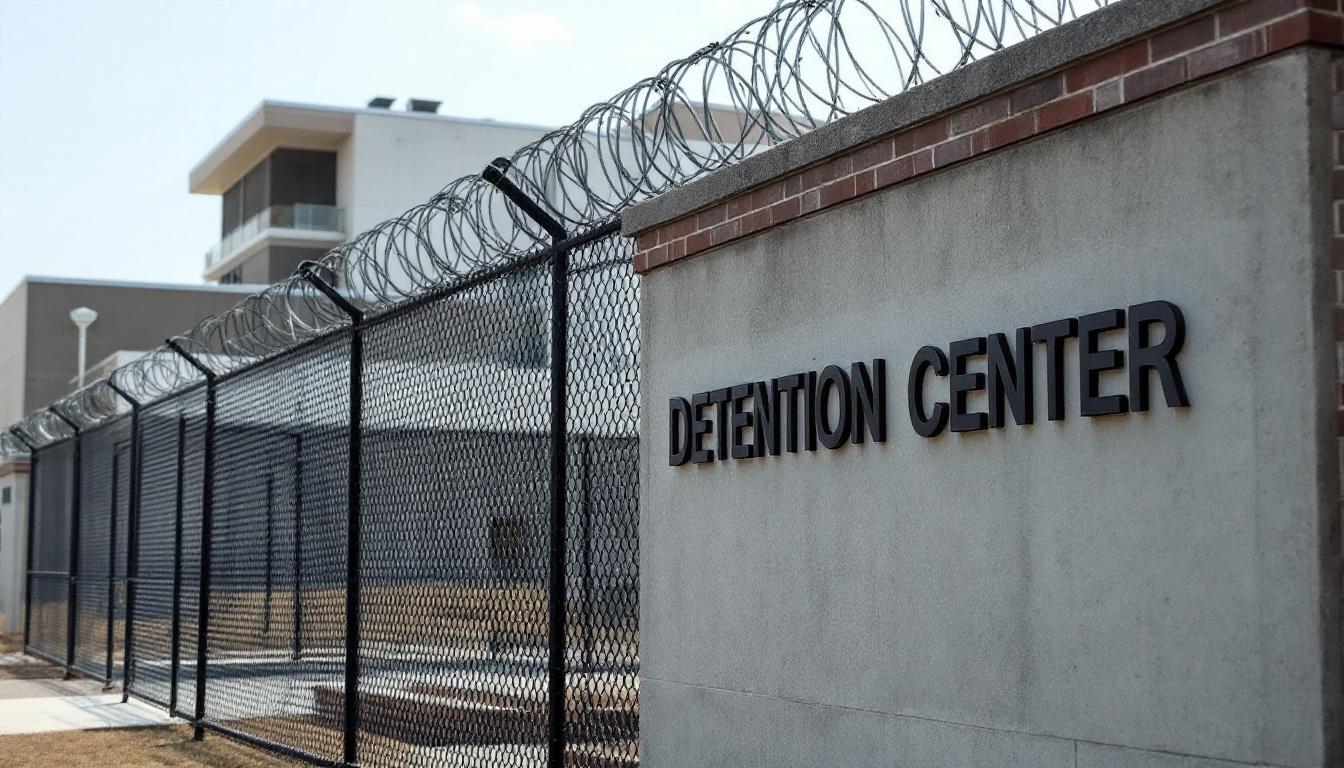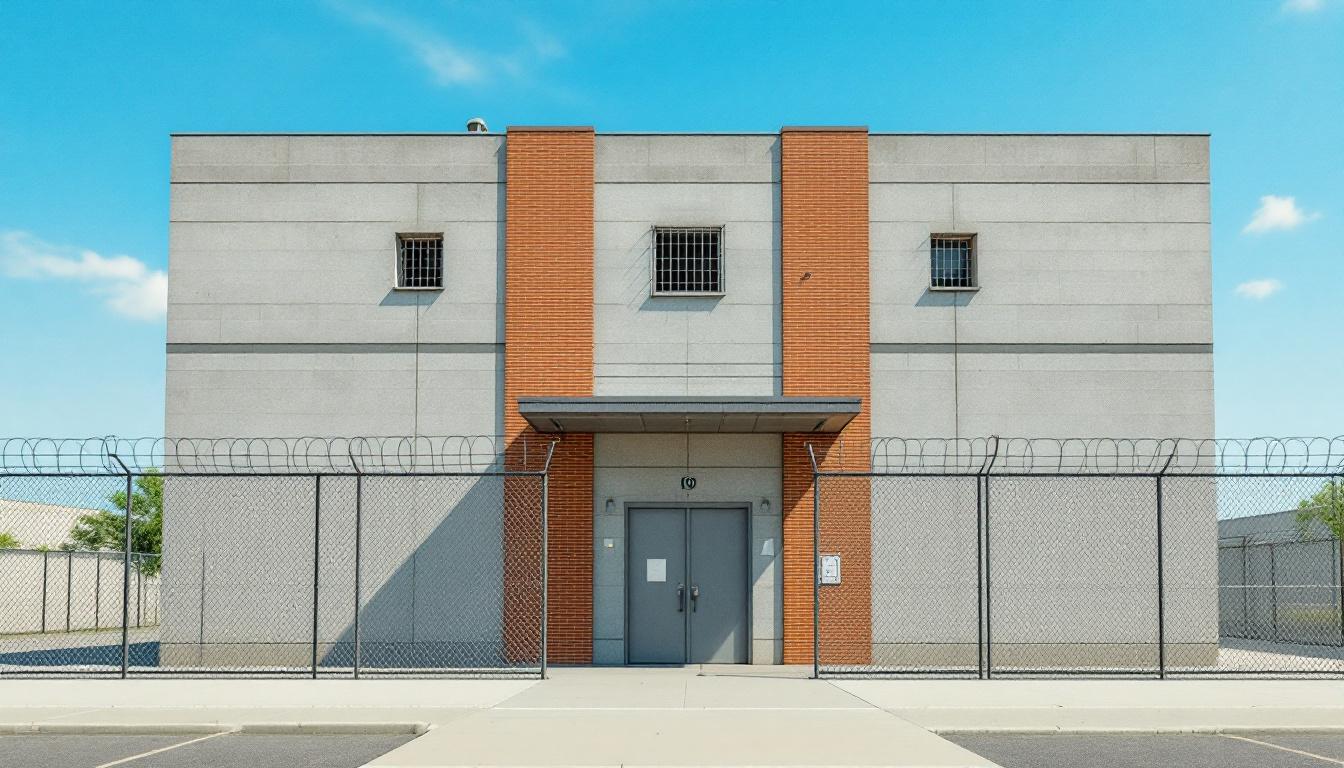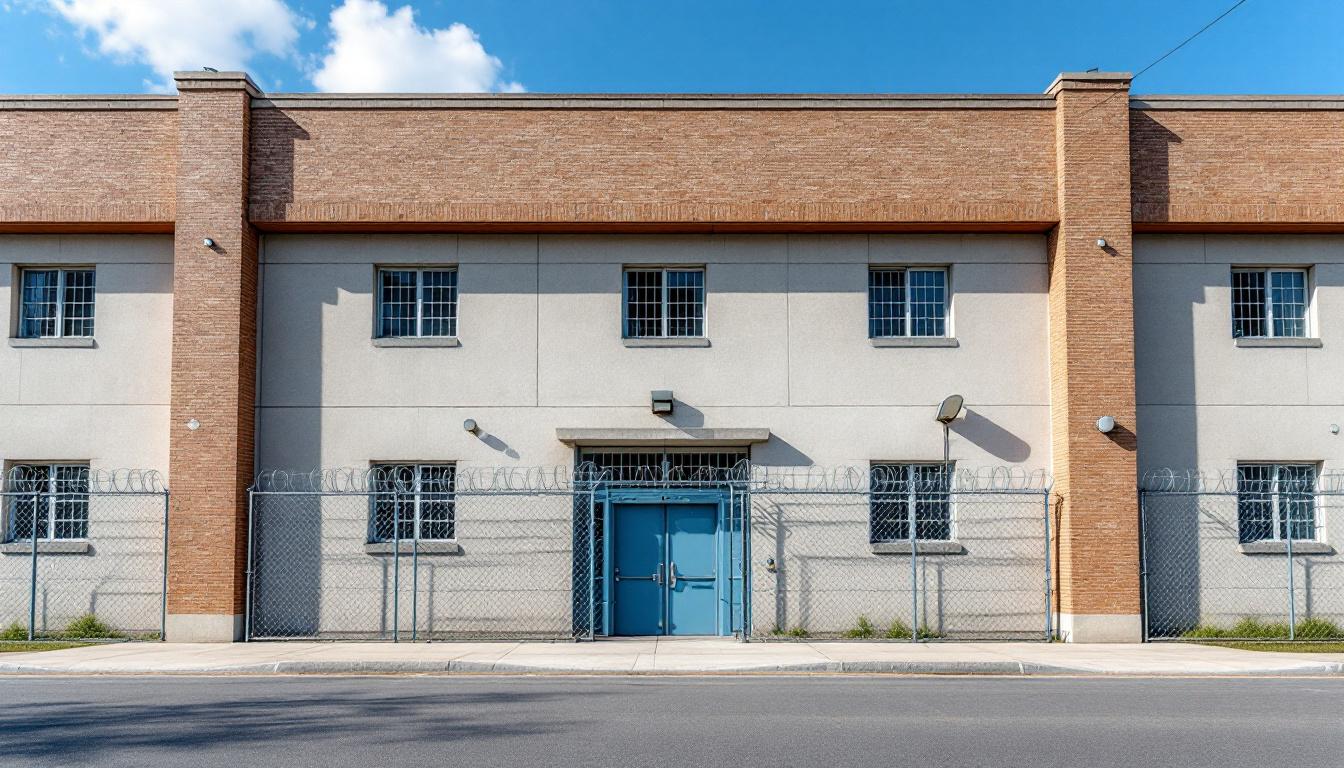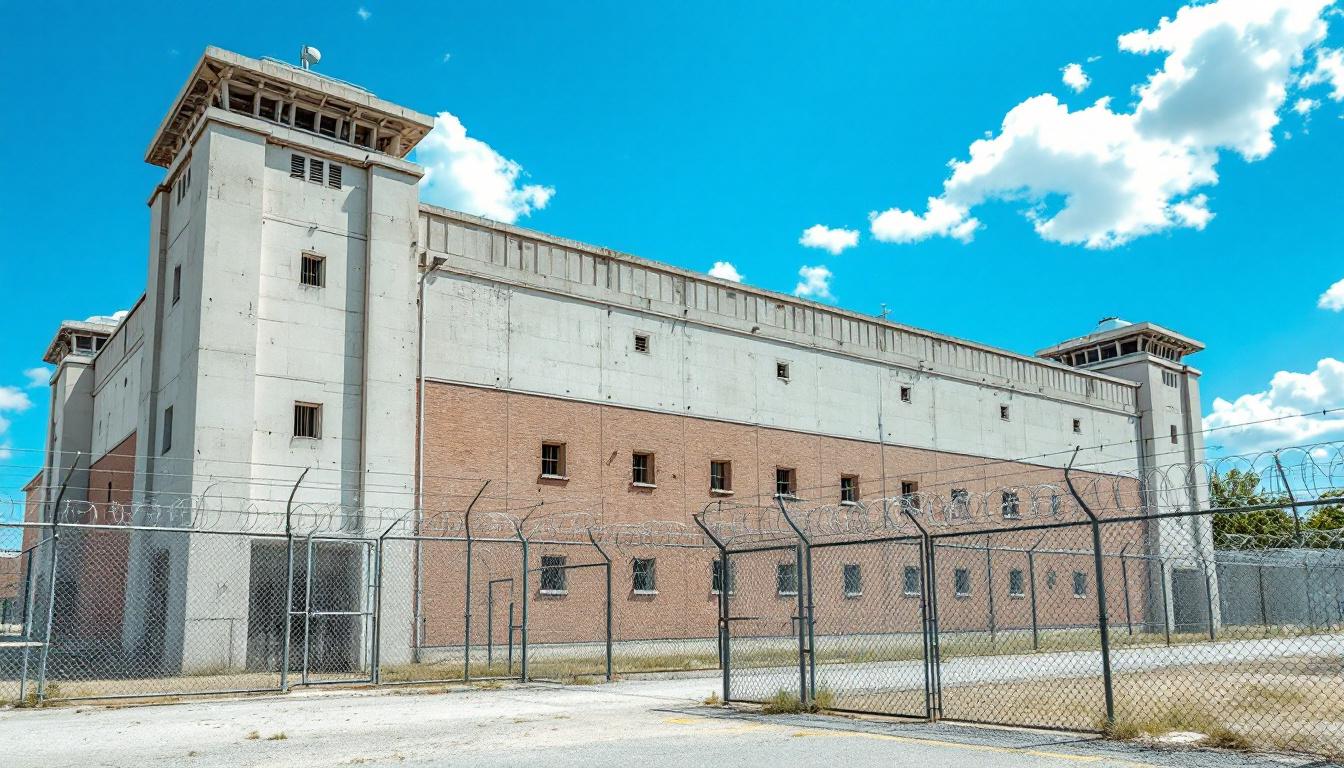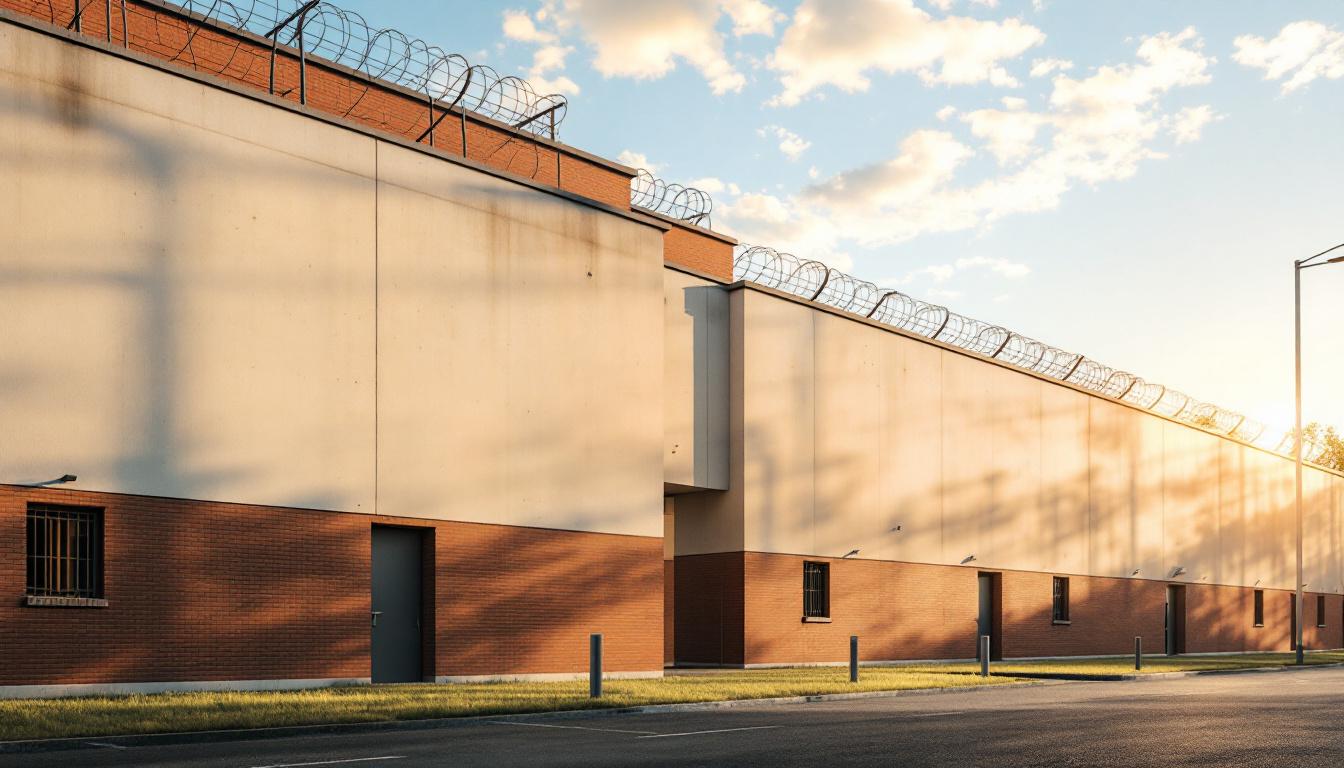
Quick Navigation
How to contact an inmate at Pitt County Detention Center
This comprehensive guide will walk you through how to connect with an inmate at Pitt County Detention Center. Follow the steps below to find an inmate and send letters and photos:
- Search for the inmate using our search tool below
- Create your account or log in to Penmate
- Write your message (up to 6,000 characters)
- Send instantly - inmates receive printed copies daily
Find an Inmate
Search for an inmate to start communicating today
Tip: You can search by first name, last name, or inmate ID number
To contact a person at Pitt County Detention Center start by searching for the person on the official facility website. Perform a search by following these steps:
- Step 1: Enter their first name and last name into the search form and click "Search"
- Step 2: Locate their inmate record
- Step 3: Write down their Inmate ID and any housing information provided
Important! Be sure to enter the person's full name. Nicknames should not be used.
How to Send Messages to Inmates

You can use your phone or computer to send emails, letters, and photos to an inmate. Messages are sent electronically to inmate tablets or kiosks at the facility. If you would like to send a message, start by searching for an inmate at Pitt County Detention Center.
Sending Photos and Postcards

A great way to send love and support to a loved one at Pitt County Detention Center is to send photos and postcards. It only takes a few minutes to send photos from your phone and it makes a huge difference. You can also mail postcards with words of support and inspiration, or design your own postcard for special moments like birthdays and holidays.
Important! Be sure not to send any explicit photos or they may not be approved by the facility. You can also use a photo printing app like Penmate to make sure your photos are printed at the correct size (4x6 or 3x5) and are mailed according to the rules and regulations of Pitt County Detention Center.
Frequently asked questions about Pitt County Detention Center
-
How long does it take to deliver a message?
If you're sending an email message your letter is usually delivered within 24-48 hours. For messages sent via mail you should expect delivery within 3-7 days. All messages will need be approved by Pitt County Detention Center.
-
How much does it cost to send a message to Pitt County Detention Center?
You can send a message free using your phone or mail a message via USPS for the price of a $0.60 stamp and envelope. You can also purchase credits or e-stamps from services starting at $1.99.
-
What services can I use to contact an inmate at Pitt County Detention Center?
Penmate
You can use Penmate to send letters and photos to an inmate from your phone. It's an easy way to stay in touch during your loved one's incarceration. Use the inmate locator to find an inmate's location and contact information, then you can send messages within a few minutes.
Securus messaging
Securus may be another option for communicating with an inmate at Pitt County Detention Center. You can create a friends and family account and purchase credits to send messages. All messages will be reviewed and must be approved by the facility.
JPay
Some county jails and state prisons may support sending messages with JPay. You must register an account with the system, find your loved one, and purchase stamps to send messages. For some locations you can also attach photos.
Smart Jail Mail
You may also check if Smart Jail Mail is available at Pitt County Detention Center. Smart Jail Mail is operated by Smart Communications and has contracted with some state and county jails. After purchasing credits, your messages and photos are sent to the facility, printed out, and then handed out to your loved one.
-
What is the mailing address of Pitt County Detention Center?
Mailing address:
Pitt County Detention Center
124 New Hope Dr
Greenville, NC 27834
Phone: (252) 902-2850 -
What are the visiting hours at Pitt County Detention Center?
Visiting hours at Pitt County Detention Center vary by housing unit and security level. Generally, visits are scheduled on weekends and holidays, with some facilities offering weekday visits. Contact the facility directly at (252) 902-2850 or check their website for the current visiting schedule. Visits typically last 30-60 minutes and must be scheduled in advance.
-
What items are prohibited when sending mail to Pitt County Detention Center?
Prohibited items typically include: cash, personal checks, stamps, stickers, glitter, glue, tape, staples, paperclips, polaroid photos, musical or blank greeting cards, hardcover books, magazines with staples, and any items containing metal or electronics. Only send letters on plain white paper with blue or black ink. Photos must be printed on regular photo paper (no Polaroids). Always check with Pitt County Detention Center for their specific mail policies.
-
How do I send money to an inmate at Pitt County Detention Center?
You can send money to an inmate at Pitt County Detention Center through several methods: 1) Online using JPay, Access Corrections, or the facility's approved vendor, 2) Money orders mailed directly to the facility with the inmate's name and ID number, 3) Kiosks located in the facility lobby, or 4) Over the phone using a credit or debit card. Fees vary by method, typically ranging from $2.95 to $11.95 per transaction.
-
Can I schedule a video visit with an inmate at Pitt County Detention Center?
Many facilities now offer video visitation as an alternative to in-person visits. At Pitt County Detention Center, video visits may be available through services like Penmate, Securus Video Connect, GTL, or ICSolutions. Video visits typically cost $10-20 for 20-30 minutes and must be scheduled in advance. You'll need a computer or smartphone with a camera and reliable internet connection. Contact the facility for their specific video visitation policies and approved vendors.
-
What identification do I need to visit an inmate at Pitt County Detention Center?
All visitors must present valid government-issued photo identification such as a driver's license, state ID, passport, or military ID. Minors must be accompanied by a parent or legal guardian who can provide the minor's birth certificate. Some facilities require visitors to be on the inmate's approved visitation list, which may require a background check. Contact Pitt County Detention Center for specific ID requirements and visitor approval procedures.
-
How can I find out an inmate's release date?
To find an inmate's release date at Pitt County Detention Center, you can: 1) Use the online inmate search tool if available, 2) Call the facility's records department, 3) Contact the inmate's case manager or counselor, or 4) Have the inmate provide this information during a call or visit. For privacy reasons, some facilities only release this information to immediate family members.
Facility Overview
Contact Information
Pitt County Detention Center124 New Hope Dr
Greenville, NC 27834
Phone: (252) 902-2850
Official Website

About Pitt County Detention Center
Detention centers serve as critical components within North Carolina's correctional framework, functioning as secure facilities that house individuals awaiting trial or serving shorter sentences while maintaining connections to their home communities. The Pitt County Detention Center, NC operates within this essential role, serving the greater Greenville area and surrounding eastern North Carolina region as part of the state's comprehensive approach to public safety and justice administration.
Positioned in Greenville, this NC correctional facility typically aligns with the state's broader correctional goals of maintaining security while supporting eventual community reintegration. The facility generally operates under North Carolina's detention standards, which emphasize both custody management and the provision of basic services that may help prepare individuals for their return to the community. Like many detention centers throughout the state, the facility often provides access to educational opportunities, substance abuse programming, and other rehabilitative services designed to address underlying issues that may contribute to criminal behavior.
The population services at detention facilities like this one typically include medical care, mental health support, and various programs aimed at skill development and personal growth. Within the context of eastern North Carolina's rural and urban communities, such facilities often serve as important links between the justice system and local support networks, potentially facilitating family connections and community-based resources that support successful reintegration following release.
Programs & Services
Support flows through carefully structured programs designed to address the diverse needs of the population at Pitt County Detention Center. The facility typically emphasizes a comprehensive approach that recognizes successful reintegration requires addressing multiple aspects of an individual's life. These programs often focus on building practical skills, addressing underlying challenges, and strengthening connections to community resources that support long-term stability.
Educational services form a cornerstone of the facility's programming approach. The population may access basic education classes that help individuals work toward completing their high school equivalency credentials. In addition to this, college correspondence courses are often available for those seeking to advance their academic goals while incarcerated. Vocational training programs typically complement these educational opportunities by providing hands-on skills development in various trades and technical areas that align with local employment opportunities.
Therapeutic programs address the complex challenges many individuals face through evidence-based approaches. Substance abuse programs may offer both group and individual counseling sessions designed to support recovery and develop healthy coping strategies. Cognitive behavioral therapy is often integrated into various programming efforts to help participants develop better decision-making skills and address patterns of thinking that may have contributed to their involvement in the justice system. Housing assistance programs typically connect individuals with community resources and support services that can help secure stable living arrangements upon release, recognizing that stable housing is fundamental to successful reintegration into the community.
Daily Life & Visitation
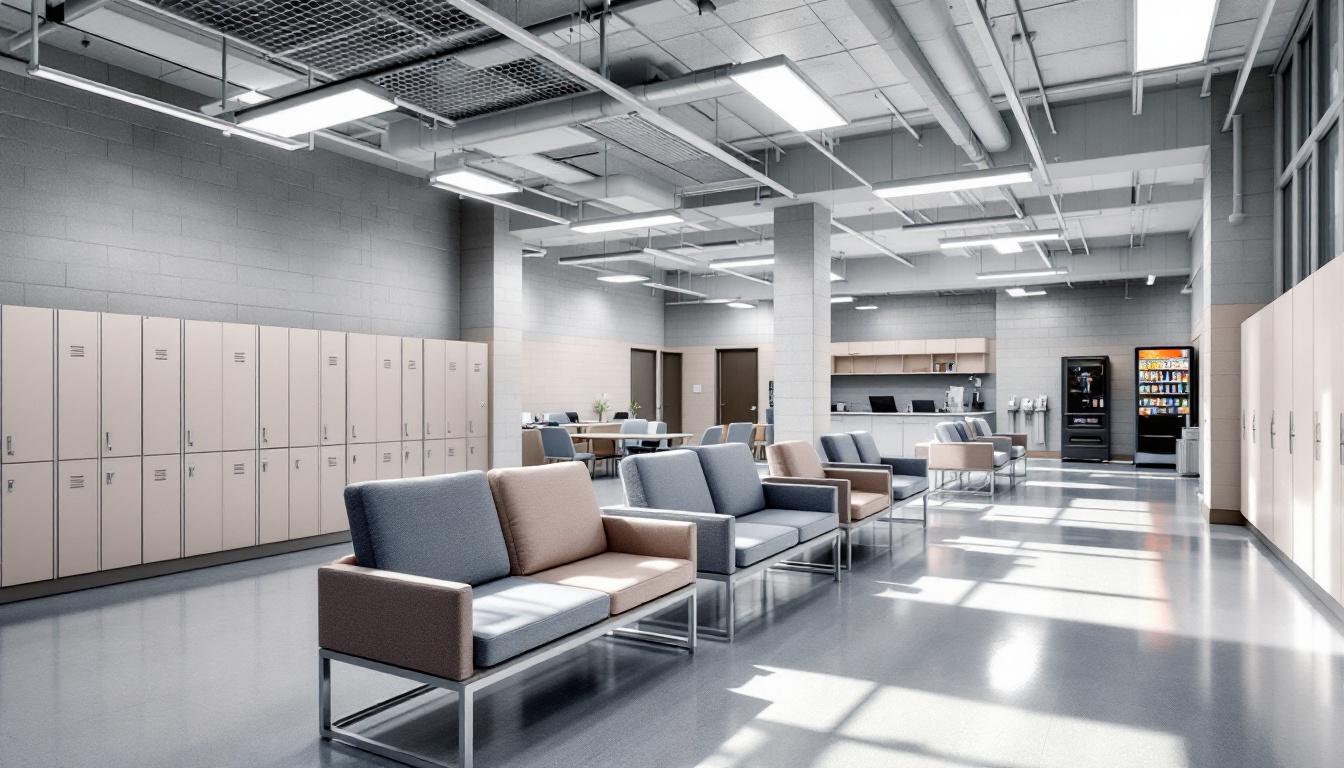
Structured schedules and clear organizational protocols actively shape every aspect of how the population experiences their time at Pitt County Detention Center. At present, daily routines typically begin with early morning counts and meal service, followed by housing unit assignments that determine work details, programming participation, and recreational periods. The facility actively maintains consistent timing for activities to supply predictability and order throughout each day.
Living accommodations generally consist of dormitory-style housing units and individual cells, depending on classification levels and available space. The population typically shares common areas within their assigned units, with personal property allowances that may include approved clothing items, hygiene products, and limited personal effects. In addition to this basic housing structure, meal service usually occurs in designated dining areas or housing units, with the population receiving three meals daily that meet standard nutritional requirements.
Programming schedules supply various opportunities for education, substance abuse counseling, and vocational training when available. Recreation periods typically include access to outdoor areas, television viewing, and library services, though specific offerings may vary based on facility resources and security considerations. Despite this structured environment, the population generally maintains contact with family members through scheduled visitation periods, telephone access, and mail correspondence, with communication policies designed to support these important connections while maintaining facility security protocols.
Ready to Connect?
Start communicating with your loved one today
Search for an Inmate
